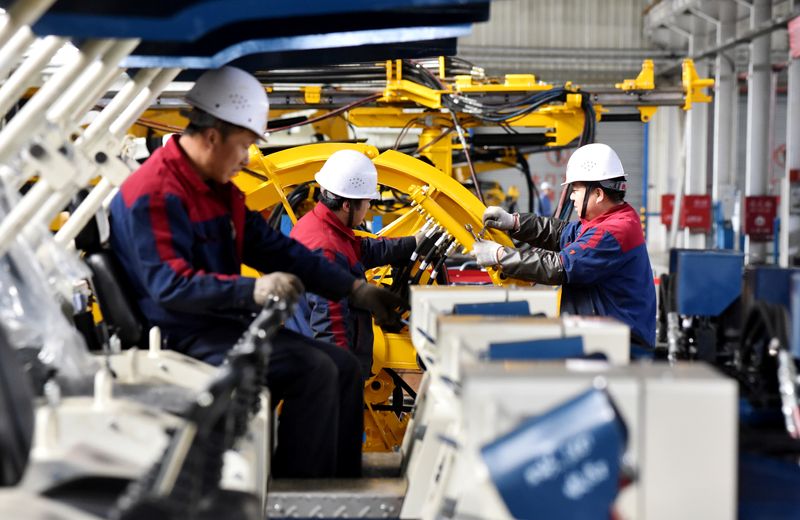BEIJING (Reuters) - China's factory activity likely expanded at the fastest pace in a year in July, a Reuters poll showed on Friday, as production in COVID-hit manufacturing hubs resumed after emerging from lockdowns while supply chain disruptions eased.
The official manufacturing Purchasing Manager's Index (PMI) is expected to have risen to 50.4 in July - the highest in 12 months - compared with 50.2 in the previous month, according to the median forecast of 24 economists polled by Reuters.
A reading above 50 indicates expansion from the previous month, below 50 means contraction.
The world's second-largest economy has bounced back from stringent and extensive COVID lockdowns, backed by rising domestic demand, fewer supply chain snags and government stimulus measures, analysts said.
"China's manufacturing sector is shaking off the impact of COVID outbreaks in the second quarter and is accelerating to return to normal," said Zhou Maohua, an analyst at China Everbright (OTC:CHFFF) Bank.
Easing production costs pressure and government's price stabilisation measures also effectively reduced the spending of industrial production, he added.
However, the economic recovery will become more challenging as exports turn from tailwind to headwind and the property downturn deepens, according to economists at Capital Economics.
The latest virus flare-ups also cast a shadow over the recovery momentum, amid external challenges including uncertainties from the months-long Ukraine war and fears of a global recession.
Policymakers are prepared to miss their GDP target of "around 5.5%" for this year, state media reported after the Politburo meeting this week. Authorities will instead focus on achieving the best results this year, a contrast to previous calls that it will work hard to meet its 2022 growth target.
"The meeting reflects a more flexible and pragmatic attitude toward the GDP target," said Bruce Pang, chief economist and head of research at Jones Lang Lasalle (NYSE:JLL) Inc, adding policy focus will not be on launching new stimulus but on implementing the existing policies and letting them take effect.
Propping up domestic demand to support jobs thus remains a policy priority, he noted. The employment components of the PMI still remain weak.

The official manufacturing PMI, which largely focuses on big and state-owned firms, and its sibling survey for the services sector, will be released on Sunday.
The private sector Caixin manufacturing PMI, which focuses more on small firms and coastal regions, will be published on Monday. Analysts expect a headline reading of 51.5 for that, down from 51.7 for June.